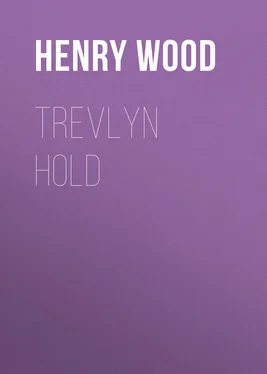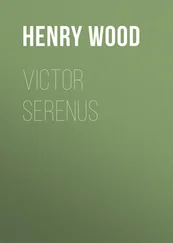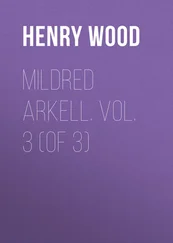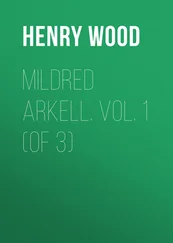Henry Wood - Trevlyn Hold
Здесь есть возможность читать онлайн «Henry Wood - Trevlyn Hold» — ознакомительный отрывок электронной книги совершенно бесплатно, а после прочтения отрывка купить полную версию. В некоторых случаях можно слушать аудио, скачать через торрент в формате fb2 и присутствует краткое содержание. Жанр: foreign_prose, literature_19, foreign_antique, на английском языке. Описание произведения, (предисловие) а так же отзывы посетителей доступны на портале библиотеки ЛибКат.
- Название:Trevlyn Hold
- Автор:
- Жанр:
- Год:неизвестен
- ISBN:нет данных
- Рейтинг книги:4 / 5. Голосов: 1
-
Избранное:Добавить в избранное
- Отзывы:
-
Ваша оценка:
- 80
- 1
- 2
- 3
- 4
- 5
Trevlyn Hold: краткое содержание, описание и аннотация
Предлагаем к чтению аннотацию, описание, краткое содержание или предисловие (зависит от того, что написал сам автор книги «Trevlyn Hold»). Если вы не нашли необходимую информацию о книге — напишите в комментариях, мы постараемся отыскать её.
Trevlyn Hold — читать онлайн ознакомительный отрывок
Ниже представлен текст книги, разбитый по страницам. Система сохранения места последней прочитанной страницы, позволяет с удобством читать онлайн бесплатно книгу «Trevlyn Hold», без необходимости каждый раз заново искать на чём Вы остановились. Поставьте закладку, и сможете в любой момент перейти на страницу, на которой закончили чтение.
Интервал:
Закладка:
The day of the funeral arrived, and those bidden to it began to assemble about one o'clock: that is, the undertaker's men, the clerk, and the bearers. Of the latter, Jim Sanders made one. "Better he had gone than his master," said Nora, in a matter-of-fact, worldly spirit of reasoning, as her thoughts went back to the mysterious hole she had gratuitously, and the reader will say absurdly, coupled with Jim's fate. A table was laid out in the entrance-room groaning under an immense cold round of beef, bread-and-cheese, and large supplies of ale. To help to convey a coffin to church without being first regaled with a good meal, was a thing Barbrook had never heard of, and never wished to hear of. The select members of the company were shown to the drawing-room, where the refreshment consisted of port and sherry, and "pound" cake. These were the established rules of hospitality at all well-to-do funerals: wine and cake for the gentry; cold beef and ale for the men. They had been observed at Squire Trevlyn's; at Mr. Ryle's father's; at every substantial funeral within the memory of Barbrook. Mr. Chattaway, Mr. Berkeley (a distant relative of Mr. Ryle's first wife), Mr. King the surgeon, and Farmer Apperley comprised the assemblage in the drawing-room.
At two o'clock, after some little difficulty in getting it into order, the sad procession started. It had then been joined by George and Trevlyn Ryle. A great many spectators had collected to view and attend it. The infrequency of a funeral in the respectable class, combined with the circumstances attending the death, drew them together: and before the church was reached, where it was met by the clergyman, it had a train half-a-mile long after it; chiefly women and children. Many dropped a tear for the premature death of one who had lived amongst them as a good master and kind neighbour.
They left him in his grave, by the side of his long-dead wife, Mary Berkeley. As George stood at the head of his father's coffin, during the ceremony in the churchyard, the gravestone with its name was in front of him; his mother's name: "Mary, the wife of Thomas Ryle, and only daughter of the Rev. George Berkeley." None knew with what feeling of loneliness the orphan boy turned from the spot, as the last words of the minister died away.
Mrs. Ryle, in her widow's weeds, was seated in the drawing-room on their return, as the gentlemen filed into it. In Barbrook custom, the relatives of the deceased, near or distant, were expected to assemble together for the remainder of the day; or for a portion of it. The gentlemen would sometimes smoke, and the ladies in their deep mourning sat with their hands folded in their laps, resting on their snow-white handkerchiefs. The conversation was only allowed to run on family matters, future prospects, and the like; and the voices were amicable and subdued.
As the mourners entered, they shook hands severally with Mrs. Ryle. Chattaway put out his hand last, and with perceptible hesitation. It was many a year since his hand had been given in fellowship to Mrs. Ryle, or had taken hers. They had been friendly once, and in the old days he had called her "Maude": but that was over now.
Mrs. Ryle turned from the offered hand. "No," she said, speaking in quiet but decisive tones. "I cannot forget the past sufficiently for that, James Chattaway. On this day it is forcibly present to me."
They sat down. Trevlyn next his mother, called there by her. The gentlemen disposed themselves on the side of the table facing the fire, and George found a chair a little behind them; no one seemed to notice him. And so much the better; the boy's heart was too full to bear much notice then.
On the table was placed the paper which had been written by the surgeon, at the dictation of Mr. Ryle, the night when he lay in extremity. It had not been unfolded since. Mr. King took it up; he knew that he was expected to read it. They were waiting for him to do so.
"I must premise that the dictation of this is Mr. Ryle's," he said. "He expressly requested me to write down his own words , just as they came from his lips. He–"
"Is it a will?" interrupted Farmer Apperley, a little man, with a red face and a large nose. He had come to the funeral in top boots, which constituted his idea of full dress.
"You can call it a will, if you please," replied Mr. King. "I am not sure that the law would do so. It was in consequence of his not having made a will that he requested me to write down these few directions."
The farmer nodded; and Mr. King began to read.
"In the name of God: Amen. I, Thomas Ryle.
"First of all, I bequeath my soul to God: trusting that He will pardon my sins, for the sake of Jesus Christ our Saviour. Amen.
"It's a dreadful blow, this meeting my death by Chattaway's bull. The more so, that I am unable to leave things straightforward for my wife and children. They know—at least, my wife knows, and all the parish knows—the pressure that has been upon me, through Chattaway coming down upon me as he has done. I have been as a bird with its wings clipped. As soon as I tried to get up, I was pulled down again.
"Ill luck has been upon me besides. Beasts have died off, crops have failed. The farm's not good for much, for all the money that has been laid out upon it, and I alone know the labour it has cost. When you think of these things, my dear wife and boys, you'll know why I do not leave you better provided for. Many and many a night have I lain awake upon my bed, fretting, and planning, and hoping, all for your sakes. Perhaps if that bull had spared me to old age, I might have left you better off.
"I should like to bequeath the furniture and all that is in the house, the stock, the beasts, and all that I die possessed of, to my dear wife, Maude—but it's not of any use, for Chattaway will sell up—except the silver tankard, and that should go to Trevlyn. But for having 'T.R.' upon it, it should go to George, for he is the eldest. T.R. stood for my father, and T.R. has stood for me, and T.R. will stand for Trevlyn. George, though he is the eldest, won't grudge it him, if I know anything of his nature. And I give to George my watch, and I hope he'll keep it for his dead father's sake. It is only a silver one; but it's a very good one, and George can have his initials engraved on the shield. The three seals, and the gold key, I give to him with it. The red cornelian has our arms on it. For we had arms once, and my father and I have generally sealed our letters with them: not that they have done him or me any good. And let Treve keep the tankard faithfully, and never part with it. And remember, my dear boys, that your poor father would have left you better keepsakes had it been in his power. You must prize these for the dead giver's sake. But there! it's of no use talking, for Chattaway will sell up, watch and tankard, and all.
"And I should like to leave that bay foal to my dear little Caroline. It will be a pretty creature when it's bigger. You must let it have the run of the three cornered paddock, and I should like to see her on it, sweet little soul!—but Chattaway's bull has stopped it. And don't grudge the cost of a little saddle for her; and Roger can break it in; and mind you are all true and tender with my dear little girl. You are good lads—though Treve is hasty when his temper's put out—and I know you'll be to her what brothers ought to be. I always meant that foal for Carry, since I saw how pretty it was likely to grow, though I didn't say so; and now I give it to her. But where's the use? Chattaway will sell up.
"If he does sell up, to the last stick and stone, he won't get his debt in full. Perhaps not much above half of it; for things at a forced sale don't bring their value. You have put down 'his debt,' I suppose; but it is not his debt. I am on my death-bed, and I say that the two thousand pounds was made a present of to me by the Squire on his death-bed. He told me it was made all right with Chattaway; that Chattaway understood the promise given to me, not to raise the rent; and that he'd be the same just landlord to me that the Squire had been. The Squire could not lay his hand on the bond, or he would have given it me then; but he said Chattaway should burn it as soon as he entered, which would be in an hour or two. Chattaway knows whether he has acted up to this; and now his bull has done for me.
Читать дальшеИнтервал:
Закладка:
Похожие книги на «Trevlyn Hold»
Представляем Вашему вниманию похожие книги на «Trevlyn Hold» списком для выбора. Мы отобрали схожую по названию и смыслу литературу в надежде предоставить читателям больше вариантов отыскать новые, интересные, ещё непрочитанные произведения.
Обсуждение, отзывы о книге «Trevlyn Hold» и просто собственные мнения читателей. Оставьте ваши комментарии, напишите, что Вы думаете о произведении, его смысле или главных героях. Укажите что конкретно понравилось, а что нет, и почему Вы так считаете.












